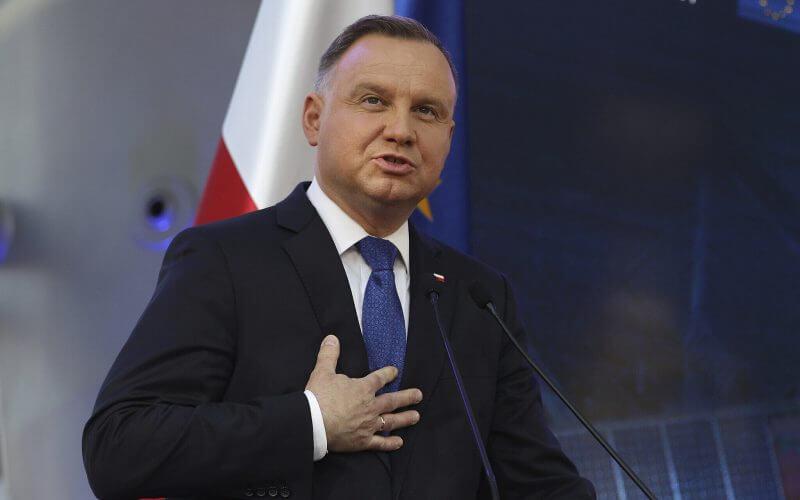Poland will send its ambassador-designate to present his letter of credence in the coming days, Polish leader Andrzej Duda told President Isaac Herzog on Monday, in the strongest indication yet that the two countries are moving beyond a bitter year-long diplomatic spat.
Their phone call, during which Herzog requested the return of a Polish envoy, is part of a months-long joint initiative with the Foreign Ministry, according to the president’s office.
The two leaders spoke in English.
“Both presidents expressed their hope that any future issues between Poland and Israel will be solved through sincere and open dialogue and in a spirit of mutual respect,” read a statement from Herzog’s spokesman.
Poland is part of the four-member Visegrad Group, a bastion of support for Israel within the European Union. The Poland-Israel group in Poland’s parliament is the largest such caucus in the legislature, with 127 out of 460 deputies in the group.
But the two erstwhile allies have been locking horns since last year. In July 2021, Poland’s legislature passed a law effectively cutting off any future restitution to the heirs of property seized by the Nazis during the Holocaust. In response to the legislation, signed into law by Duda, Foreign Minister Yair Lapid called it “antisemitic and immoral.”
Israel recalled its envoy to Warsaw for consultations the following month. Lapid advised Poland’s ambassador to Israel to remain on vacation in his homeland, and instructed Israel’s new ambassador to Poland, Ya’acov Livne, to remain in Israel.
Since then, the two sides have slowly deescalated the tensions. Livne took up his post in Warsaw in February to coordinate Israeli efforts to extract citizens from Ukraine and to provide aid to Kyiv. Two Polish lawmakers visited the Knesset in June, the first to do so since 2017.
Russia’s invasion of Ukraine is driving the two countries back together, Polish MP Marek Rutka told The Times of Israel last month.
Disagreements remain, however. Last month, Israel canceled educational trips to Poland for thousands of high school students this summer, charging the Polish government is trying to control the Holocaust studies curriculum taught to Israeli children.
The Polish government wants formal rules to regulate the terms under which Israeli schoolchildren conduct Holocaust study visits to the country, including the presence of armed Israeli guards, Deputy Foreign Minister Marcin Przydacz said in June.
Przydacz said that young Israelis were receiving a “negative image” of Poland because of the armed guards accompanying the youth groups, the visits’ focus on the Holocaust only, and a lack of contact with Polish youth.
Six million Jews, including nearly all of Poland’s roughly 3 million Jews, were killed by the Nazis and their collaborators during the Holocaust, and major Nazi death camps were in Poland.
In addition, Holocaust researchers have collected ample evidence of Polish villagers who murdered Jews, or Polish blackmailers who preyed on helpless Jews for financial gain.
However, some members of Poland’s resistance and government-in-exile warned the world about the Nazis’ mass killing of Jews, and thousands of Poles risked their lives to help Jews.
These dueling narratives have been a source of great tension between Israel and Poland in recent years.









